How wild elephants and white elephants are ruining Kannur's Aralam Farm, workers' lives

Mail This Article
Kannur: Around 1.30 pm on March 17, when Raghu (43) was collecting firewood near his house, his life was snuffed out by a wild elephant in Kannur's Aralam Farm -- one of the biggest settlements of tribespeople in Kerala.
Raghu, son of Koran of Block 10, was the 14th victim of wild elephants in the settlement area of Aralam Farm spread over 3,780 acres, surrounded by rivulets and the Aralam Wildlife Sanctuary.

"Their blood is on the hands of the Kerala government's Chief Secretary and the Chief Conservator of Forests," said P K Ramachandran, a security guard and resident of Aralam Farm. He is also the secretary of the CPM's Aralam Local Committee.
As is the ritual after every killing by wild elephants in Aralam, the CPM, the Congress and the BJP observed hartal the next day in Aralam grama panchayat. Residents staged protests against the delay in constructing an elephant-proof concrete wall protecting the settlement area from wild animals.

As in July 2022, when an elephant killed Damu (48), a mason, and before that 17-year-old Pavish, the elected leaders such as the MLAs and the minister for Forest A K Saseendran promised to build the 13-km protective wall.
But their inaction is contemptuous of the 2021 High Court order which directed the state government to build the wall in 18 months flat.
The High Court directive came five years after four residents, led by Chandran of Block 13, filed a public interest litigation in 2016, seeking protection of their lives and properties.
With utter disregard for lives, the wall was never built. Four persons were trampled to death in 2022; and 2023 has begun with the death of Raghu, who left behind his wife Beena, and three young children, Rahina, Ranjini, and Vishnu.

Aralam Farm, workers' lives in ruins
As part of rehabilitating tribespeople, the government assigned one acre each to around 3,335 families on Aralam Farm. But only 1,717 families relocated to the farm, with the first settlers coming in 2006-2007.
In June 2010, the Kerala government set up Aralam Farming Corporation to better manage farming activities.
It was once the single largest coconut-producing entity in India. "We used to harvest 3 lakh to 5 lakh coconuts every three months from the farm even three years ago," said Ramachandran. "Now we hardly get 4,000 to 5,000 coconuts from 3,500 acres," he said.
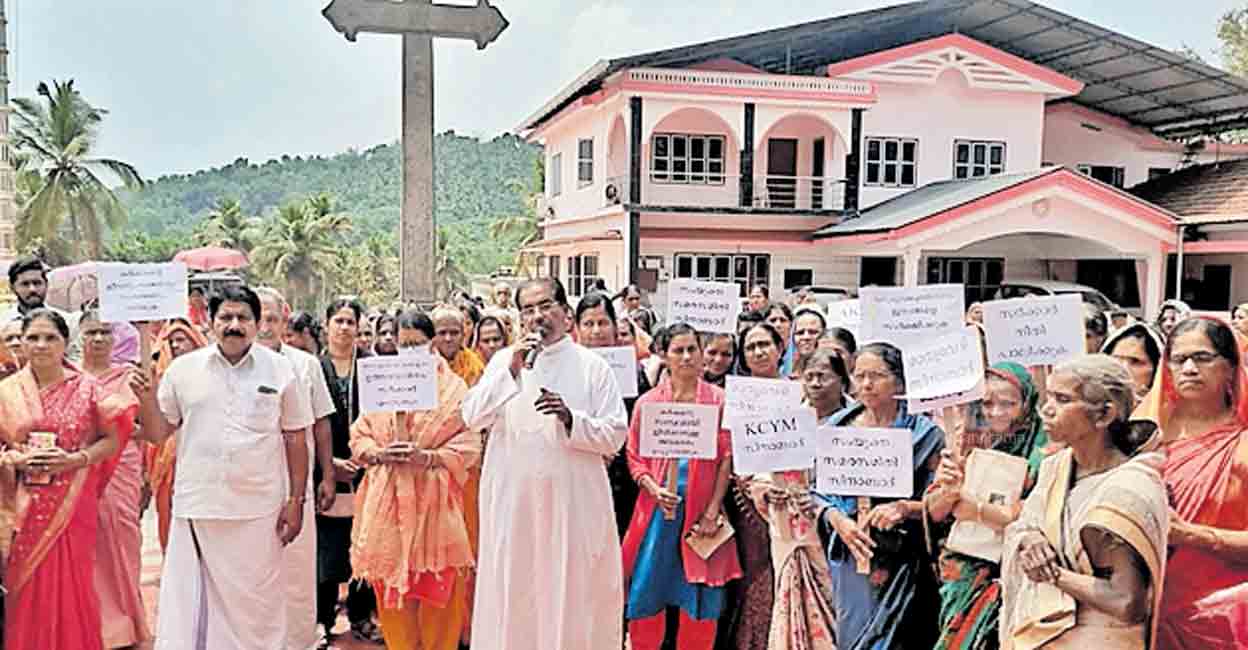
Workers said raiding elephants have felled 15,600 coconut trees out of the more than 40,000. Raiding monkeys destroy tender coconuts from the standing trees, they said.
The rubber trees on 600 acres are not being tapped regularly because of the fear of elephants. "At least 35,000 rubber trees are not being tapped," said Ramachandran.
For the past six months, the corporation has not paid wages to its 400-odd workers, of whom 274 are tribespeople and residents of the Aralam Farm.
"The daily wage is just Rs 500. But the corporation is not paying it," he said.
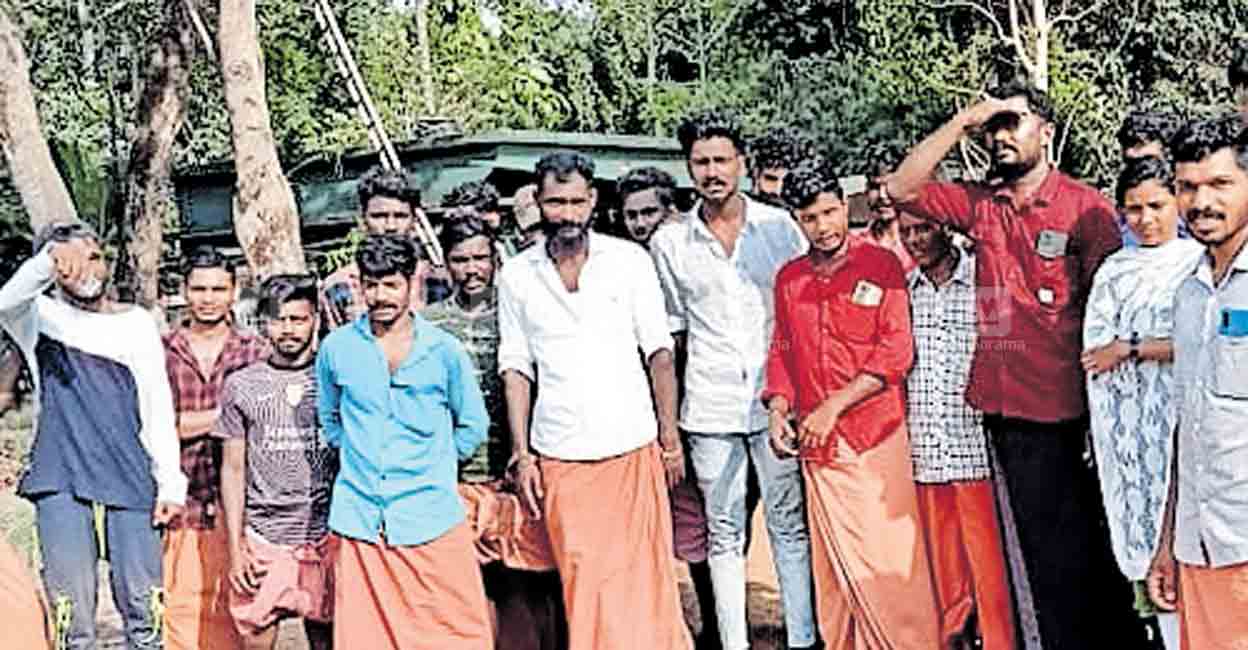
The workers have started an indefinite strike in front of the farm office demanding their wages.
In 2014, the then Oommen Chandy government regularised the service of 100 workers who completed 240 days of work, said the CPM local secretary. "Now there are another 52 workers who have completed 240 days of work. But the government is not regularising them despite the board of the corporation approving it," he said.
The day labourers earn only between Rs 9,000 and Rs 12,000 in a month, whereas the regular employees get around Rs 21,000.
The government will have to release at least Rs 5 crore to clear the wages of the employees of the past six months. "We are in a dire situation. The neighbourhood shops have stopped giving us groceries on credit," he said.
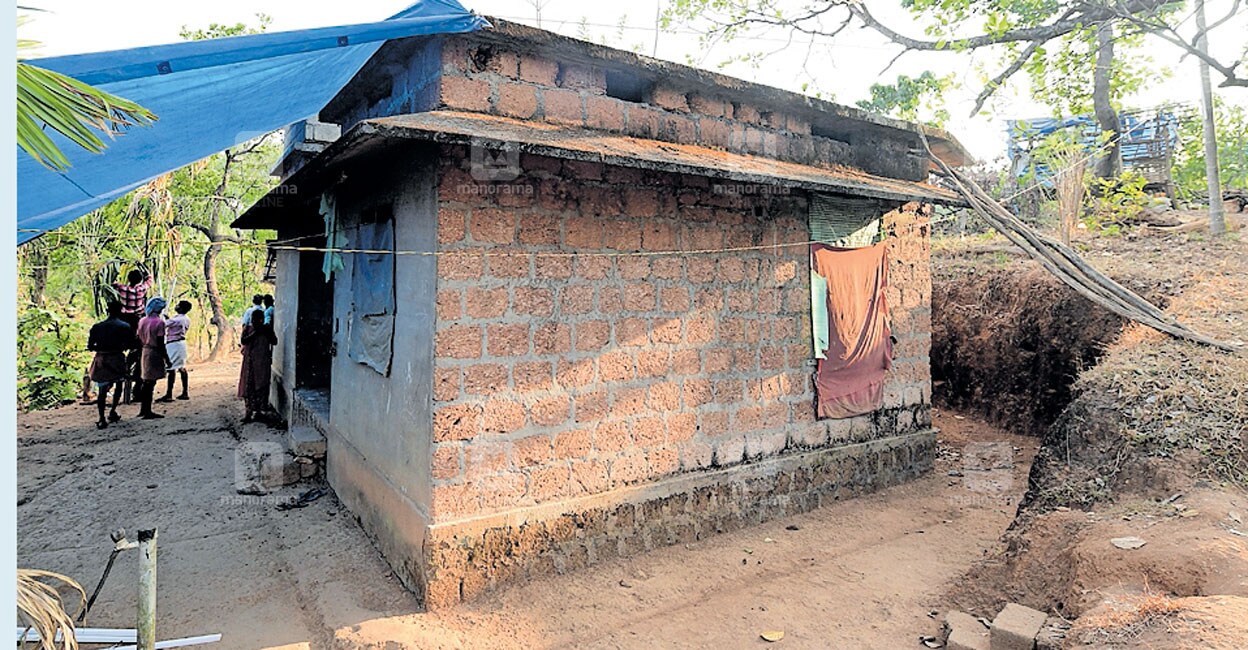
Around 60 elephants on the farm
Residents say around 60 elephants have made Aralam Farm their home, raiding crops at will. "Today, I stood on the road to my house for 30 minutes for the elephant to pass," said Shobha V, a grassroots Congress leader from Aralam Farm and member of the Iritty Block Panchayat.
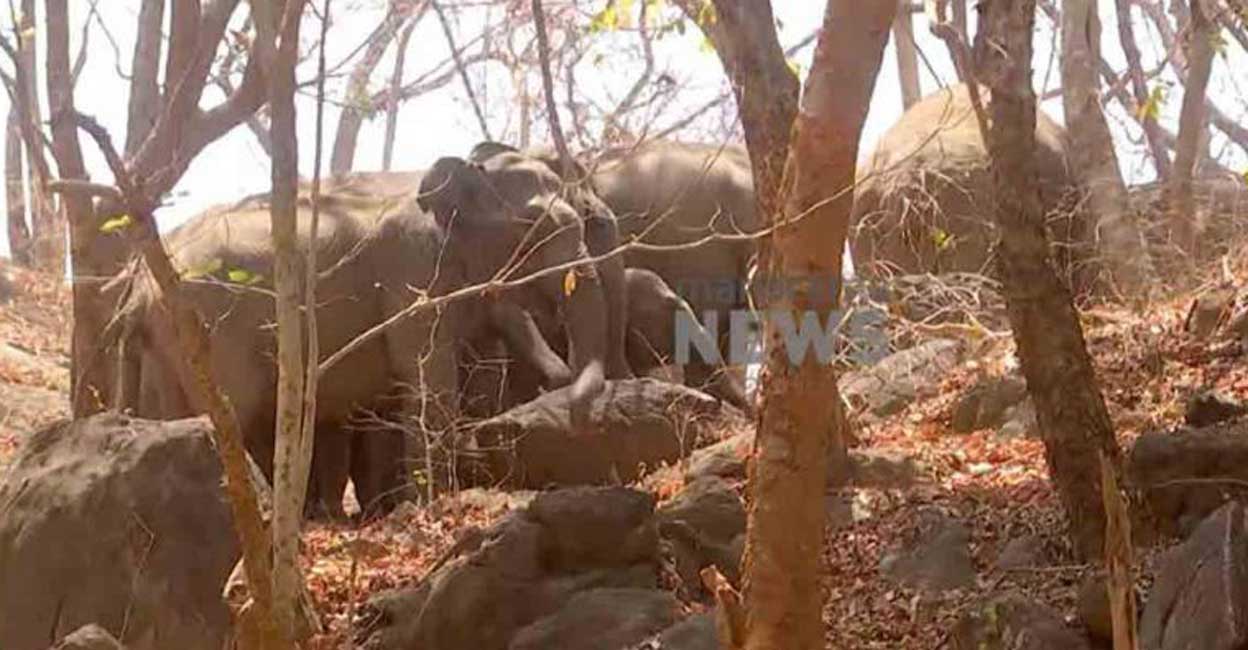
She is a resident of Block 10 of the Farm where elephants have killed three persons, including Raghu. Another three persons were killed in Block 7. The two blocks have an area of 1,000 acres each. The uninhabited plots in the residential areas have overgrown vegetation giving perfect cover for the wild animals.
"Of the 14 persons killed in the farm since 2012, nine are tribespeople," she said. "Perhaps that's why there is no prick of conscience for the government," she said.
The rehabilitation village is spread over six blocks -- Block Numbers 7, 9, 10, 11, 12, and 13.
The largest community in the settlement is the Paniya tribe with 1,798 families. Karimpalans, Kurichiyas, Mavilans, and Kattunayakan tribes are the other big communities settled on the farm. Blocks 1 to 7 and 8 are farmlands.
But irrespective of farmland or settlement areas, elephants, deer, monkeys, and wild boars routinely raid Aralam Farm. "We used to have around 25 coconut trees. Now we have just one coconut tree in our one-acre plot. We cannot even grow a kanthari (bird's eye chili)," said Shobha.
The conflict with animals, particularly with the elephants can be countered by building the 13km wall, said Iritty Block Panchayat president and former Aralam grama panchayat president K Velayudan. He was a worker on the farm from 1977 to 1979.
In 2014, the Oommen Chandy government built a 13-km-long and 4-m wide stone wall from Valayanchal to Kariankappu on the other side of the sanctuary.
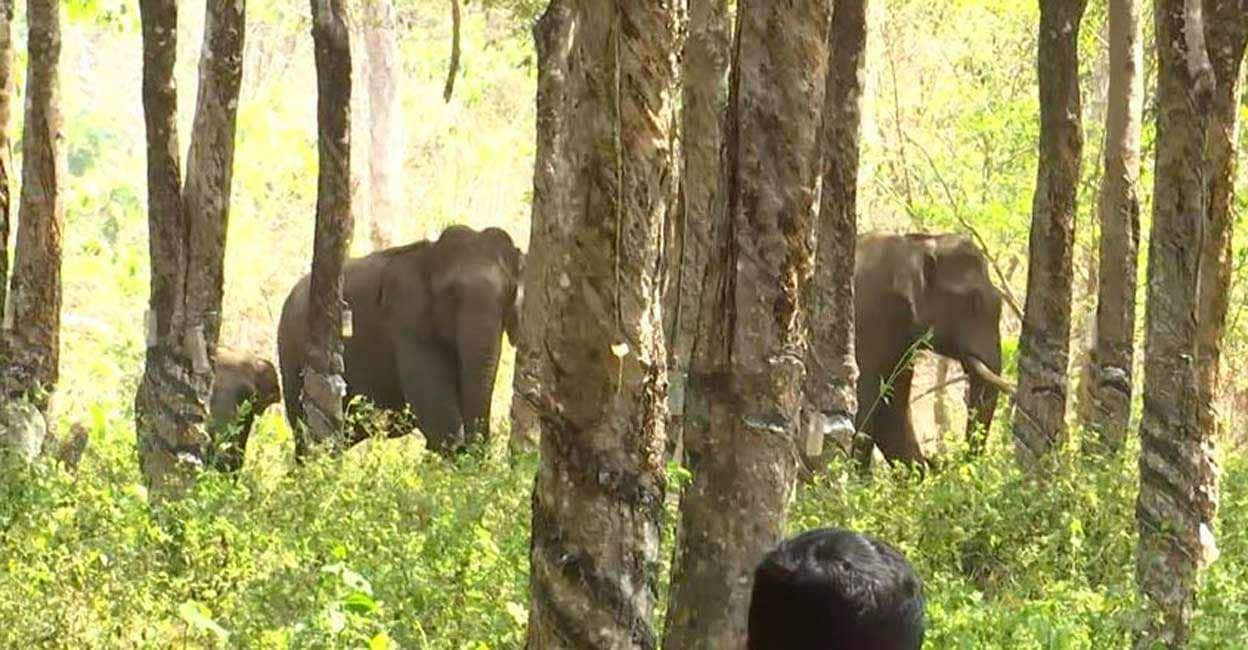
The wall was built by the Uralungal Labour Contract Co-operative Society (ULCCS). "The wall is still intact and not one elephant enters the farm from that area," he said.
People have been demanding a similar 13-km wall on this side from Valayanchal in Block 9 to Pottichapara in Block 13, and have moved to the High Court for it. "When the PIL was in the court for five years, four lives were lost," said Velayudan, a Congress leader.
After the HC order, the government sanctioned Rs 22 crore for the project and transferred Rs 11 crore to the PWD to build it. "But the chief secretary submitted a report saying a hanging solar fence would be ideal and not the wall," said Velayudan. "Now we don't have a wall or a fence," he said.
Meanwhile, the PWD has revised the estimate of the wall to Rs 53 crore from Rs 22 crore. The bureaucratic white elephant can be as costly an affair as the wild elephants.


